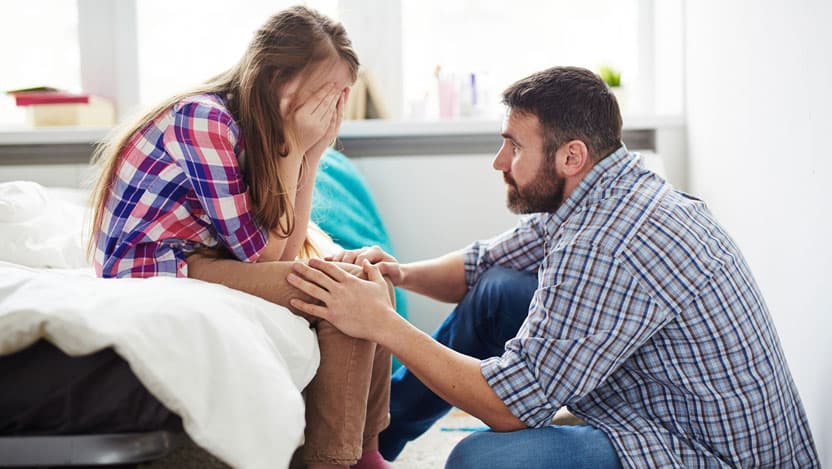Tips to help kids cope following tragic news events

Mass shootings raise many questions: How do you talk to your children about such a horrendous event? Is there an age that's too early to have this discussion?
It may help to consider these tips for as you contemplate what to say to the children in your life. Parents, you can also call your child's pediatrician or other health professionals for more information.
Talking about painful or traumatic events with children can be difficult, but sometimes very beneficial. There are two important variables to take into account:
- The child's age — or more precisely, their developmental level
- Where the child is, specifically, in their thinking about the event
Listen to your child.
As with all children, especially with younger children, it is important not to impose our own adult concerns or reactions on the child, but instead to respond to the child's concerns. First and foremost, this involves listening to the child. When it comes to events like a school shooting, parents are advised to be attuned to what, if anything, the child has heard or seen about the event.If the child appears not to know about the scary incident, there is no need to impose it on the child. If the child is aware of it, listen to what he or she says about it and get a feel for how much the child understands about what happened.
Be direct and sensitive to age.
If the child has questions, answer those in a direct and straightforward way. But answer them at the level from which the child is asking them. For example, if an 8-year-old asks, "Why would someone do that?" a simple explanation such as, 'Sometimes something goes wrong with people and they are not thinking right," should suffice.Be reassuring.
Children may express concerns about their own safety. Acknowledge and address their concerns, but reassure them that they are safe because even school shootings, as horrendous as they can be, are statistically improbable. (It is much more likely that their safety would be compromised by many everyday activities, such as getting in a car.)Limit preschoolers' exposure.
Ideally, preschool-aged children should not be exposed to information about such events. Distress in a preschooler is much more likely to be acted out behaviorally with irritability, difficult behavior, tantrums or regression to earlier levels of functioning than it is to be articulated verbally. Parents should be as reassuring and close as possible if the child appears distressed by the event. If the preschooler has questions, they should be answered in the simplest terms with reassurance of their own safety and that of those close to them.Allow for expression in older kids.
School-age children are clearly more capable of understanding what happened at a verbal level. If they are concerned or distressed by what they have been exposed to, a more extensive discussion about what they are struggling with may be appropriate. Language is probably the best tool we humans have to deal with difficult feeling states. When we can put what's bothering us into words — even if that doesn't make it go away — our distress can become more manageable.For adolescents, who are generally capable of thinking at a more abstract level, issues of death need not be avoided, even though reassurance of the statistical likelihood of safety is still justified. With more sophisticated teenagers, if they are thinking about a tragic event, discussing how we regulate our society (for example, how we balance personal freedoms with gun control) may be appropriate.
Don't ignore your feelings.
Finally, as parents, teachers, doctors or other adults who interact with children, we are all vulnerable to being overtaken by our own feelings in response to a traumatic situation such as this. There is little to be gained by stoic efforts to suppress our true emotions while talking to children about it. This is what emotions are for. Children need not be overwhelmed or traumatized by difficult emotions if we model our own acceptance and tolerance of them.
Joshua Kellman, MD
Joshua Kellman, MD, specializes in pediatric psychiatry and behavioral disorders.
Learn more about Dr. Kellman